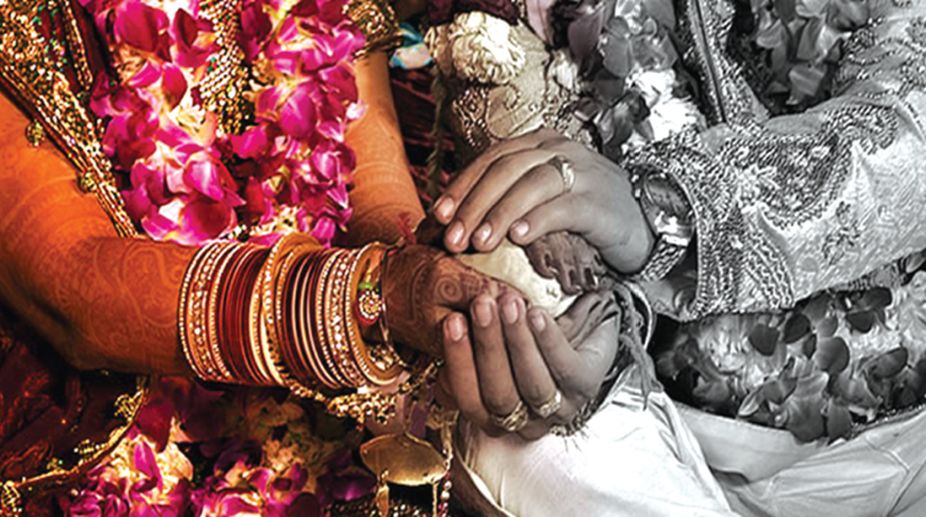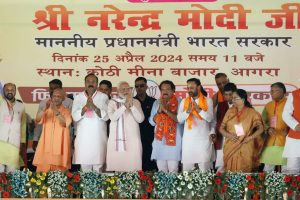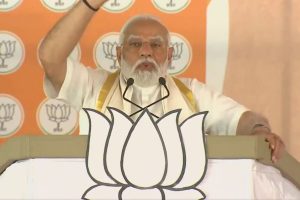Can a wife, born in high caste and married to a scheduled caste, claim to be scheduled caste on the strength of her marriage? The Supreme Court has ruled she cannot. Citing convention, the court ruled that caste is determined by birth and cannot change upon marriage.
The case that came up for hearing was one involving the vice-principal of Kendriya Vidyalaya, Pathankot. She was born as a general caste but obtained a SC certificate by citing her marriage to a scheduled caste man. From the facts of the case, it did not seem that there was any foul play on her part. It seemed a simple ignorance of law or its applicability. Even those who issued the certificate to her were not aware of how the caste law was to be applied and who was entitled to a certificate.
While one is not enamored of the caste system and the attending reservations it entails, it needs to be stated that the caste system as it stands today (and on the basis of which the scheduled castes were identified and affirmative action was put in place for them) is basically derived from the socalled purity of blood that is supposedly mentioned in ancient Hindu texts, specifically the Rig Veda.
Hence it is that khap panchayats and other self-styled guardians of Hindu morality prevent inter-caste marriage – lest it infuse ‘impure’ blood in future generations. If this is taken as the basis of caste divisions, there can be no way that a wife born as an upper caste claim to be a SC on the basis of her marriage to any such person. She can never apply and obtain a SC certificate and she can never receive the benefits to which SC’s are entitled.
It is a fact that all applications for obtaining a scheduled caste certificates now have a column that asks for verification of blood relation from parental side. A certificate is granted only to a person who can show that any one from his or her father, own brother, own sister, uncle from parental side, nephews or nieces (obviously, also from parental side) are registered as scheduled caste with the competent authority. This effectively means that even a child born out of a marriage between a scheduled caste mother and an upper caste father is ineligible for getting a SC certificate.
In our patriarchal society, lineage is established through the father and his family. The caste of the mother is irrelevant for this purpose as the child’s lineage and his family name is established from that of his father. In this scenario, if a child cannot claim to be a scheduled caste even if his mother is one, a wife can never claim to be one on the strength of her marriage to a scheduled caste person.
In the instant case, the apex court took cognisance of the fact that she had perhaps done nothing wrong (other than ignorance of law) and her mistake was in fact compounded by those who issued her the certificate, in this case the District Magistrate/Collector of Bulandshahar in UP. She was given the job on the basis of both her academic qualifications and the SC certificate.
But her services were terminated when a complaint was lodged with the Kendriya Vidyalaya Sangathan and her SC certificate was subsequently cancelled. Her efforts to get the certificate reinstated were rejected by district authorities and she did not get any relief from the Allahabad High Court. Hence, she preferred this appeal in the Supreme Court.
The apex court categorically stated that “there cannot be any dispute that the caste is determined by birth and the caste cannot be changed by marriage with a person of scheduled caste. Undoubtedly, the appellant was born in ‘Agarwal’ family, which falls in general category and not in scheduled caste. Merely because her husband is belonging to a scheduled caste category, the appellant should not have been issued with a caste certificate showing her caste as scheduled caste.”
But keeping in mind her excellent service record and absence of foul play on her part, the court changed her dismissal from service to compulsory retirement. At the same time, the court asserted that the instant case could not be considered a precedent for similar cases in future, which would obviously be decided on case-to-case basis after examining material on record.
Given that a SC certificate brings with it a host of benefits, including reservations and relaxations in educational seats and government jobs and doles, such a certificate cannot be issued in a cavalier manner. Authorities mandated to issue such certificates must establish eligibility beyond doubt before issuing one. But rampant corruption at lower levels means that sometimes these certificates are issued to ineligible persons who can afford to bribe concerned officials.
Although such rackets have not been discovered yet, individual cases do come to light once in a while. They could either be related to corruption or could be simple errors of judgment or misinterpretation of law. In either case, the damage caused to the system is immense. Hence, it is required that proper checks are introduced and authorities mandated to issue such certificates are given a crash course in the appropriate laws. Further, a foolproof guideline also needs to be laid down.
The writer is Editor-in-Chief of www.indiacommentary.com











